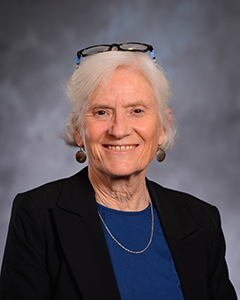BY STATE REP. PAM MARSH D-Ashland, House District 5
GUEST COLUMN IN THE ROGUE VALLEY TIMES
Feb 27, 2024 Updated Feb 28, 2024
This week, the Oregon Legislature is considering HB 4002, a treatment-focused bill drafted to respond to the state’s addiction crisis and address Measure 110.
The bill will include behavioral health investments/reforms, rigorous penalties for drug dealers, medical treatment for individuals in our jails, and the institution of criminal penalties for possession that will allow police to confiscate drugs.
Counties will be strongly encouraged to create deflection programs that will provide individuals who are found with possession with multiple pathways to connect with treatment and avoid long term legal consequences, including jail or a criminal record.
HB 4002 responds to conditions on the ground, as well as to the greater political environment. Since passage of Measure 110, two other intersecting but separate issues have emerged: 1) fueled by the pandemic, we are experiencing a huge increase in the number of people living on our streets or at high risk of homelessness, and 2) international cartels have flooded our communities with fentanyl, a potent, cheap, addictive, and deadly synthetic opioid that has contributed to a record number of overdose deaths, both statewide (1,268 deaths in 2023) and in Jackson County.
Homelessness, fentanyl, and Measure 110 are distinct issues that each require a specific set of policy responses. But many Oregonians frustrated with homelessness and terrified by the prevalence of drug use and reports of overdoses on our streets have focused on Measure 110, questioning whether it is the right approach for communities.
Surveys indicate that 63% of voters support reinstating criminal penalties for drug possession. Two initiative measures have been filed that propose to bring back significant criminal penalties and mandatory treatment. If these initiatives qualify for the ballot and then pass (as polls suggest they will), the severe drug penalties they impose can only be changed by a 60% vote of the legislature — an exceedingly high bar.
Many sections of HB 4002, including the behavioral health reforms and penalties for dealing, are noncontroversial. However, I have heard from many Oregonians who view the creation of a misdemeanor for possession as a giant step backward.
I am concerned that the amended bill will make deflection programming optional and not mandatory for counties. Accordingly, we will need to closely monitor implementation to make sure counties utilize best practices and create programs that work for the individuals who need them.
We will also need to ensure that the Criminal Justice Commission is collecting all relevant data to make sure that the new law is not disproportionately impacting people of color or other vulnerable populations.
Despite these reservations, I will support HB 4002.
Long before my election to the legislature, I worked as an administrator for a local nonprofit providing drug and alcohol treatment. I didn’t know anything about addiction before I took that job, but I quickly developed tremendous respect and awe for my co-workers, many of whom were in recovery from long term addiction, and our clients, who were struggling to attain sobriety and establish stable lives.
Addiction is a pervasive, debilitating, and persistent condition, and recovery quite often requires individuals to change everything about their lives, including their friends, the place they live, their jobs, and their relationship with family members.
Continuing investments in peer support, emergency housing, and other ancillary services that were created via Measure 110 are integral to long term recovery and must continue. However, I also observed that law enforcement consequences were, for some individuals, the beginning of a path to stability.
This experience on the ground informs my perspective on HB 4002. The comprehensive, treatment-centered approach proposed in the bill threads the pragmatic and political needle.
Given all considerations, I believe it is the right path forward.
